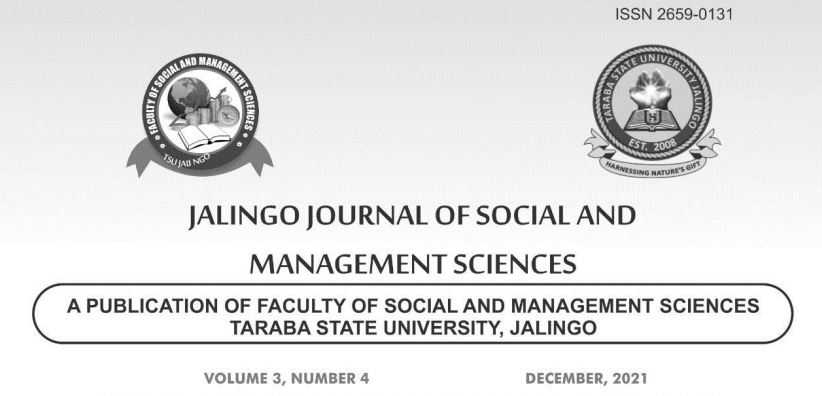Impact of Financial Sector on Nigeria’s Economic Growth
Keywords:
Bank Assets, Bank Loan, Banking Sector, GDP, Money SupplyAbstract
This study investigated the impact of banking sector on Nigeria’s economic growth that was measured by the Gross Domestic Product (GDP) during the period (2000–2019). The study selected GDP as a dependent variable which is measured by five independent variables namely total bank deposit (TD), Total bank asset (TA), Total loan and advances (TL), Money supply (MSP), and foreign direct investment (FDI). These variables are indicators of banking sector and affect the economic growth in Nigeria. The data for the variables were sourced from World development index, central bank of Nigeria annual reports. The variables were subjected to Johansen Co-integration technique to explore their long-run relationship. Phillips-Peron tests were conducted to examine stationarity (unit root) and the order of integration of the variables followed by the error correction model (ECM). The findings revealed that there is strong relationship between banking sector and the economic growth. The study thus recommended adoption of policies and actions that will develop the Financial Sector (FS) in the form of increased banking credits to the private sectors, robust and efficient capital market as well as increase flow of foreign direct investment to the FS of the economy. This will ultimately impact significantly and positively on the real gross domestic product in the form of economic growth.

Downloads
Published
Issue
Section
License
Copyright (c) 2023 JALINGO JOURNAL OF SOCIAL AND MANAGEMENT SCIENCES

This work is licensed under a Creative Commons Attribution-NonCommercial 4.0 International License.
